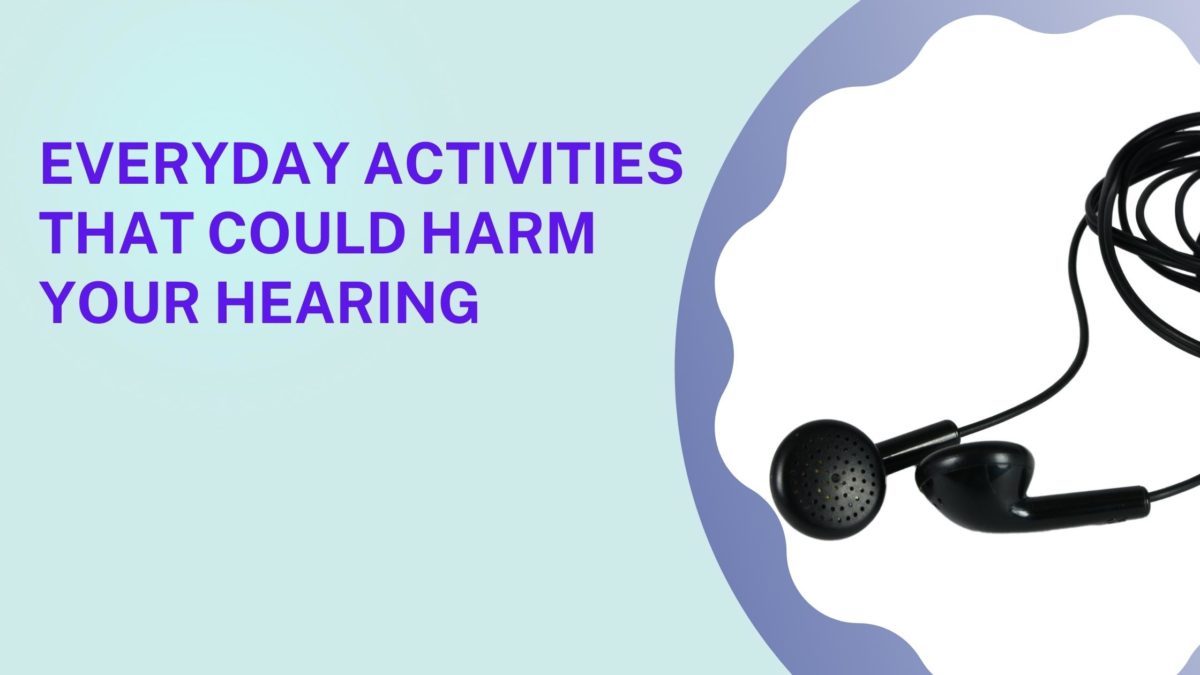- Are Cochlear Implants Worth It? - June 6, 2025
- Tips for Using Hearing Aids in Different Environments - May 27, 2025
- Rechargeable Hearing Aids vs. Battery-operated Hearing Aids - May 16, 2025
We are constantly absorbing and processing sound throughout the day. This includes everyday activities that produce noise that could be potentially harmful to hearing health!
Impact of Noise on Hearing
One of the most common causes of hearing loss is loud noise. One-time or consistent exposure to loud noise can damage critical components of the auditory system – the sensory system that includes the ears and brain which absorb, process, and understand speech and sound. This includes the following:
- Outer ear: this includes the most visible part of the ear (the outside cartilage) which absorbs sound from the environment. This sound then travels through the ear canal and lands on the eardrum.
- Middle ear: soundwaves striking the eardrum activate the ossicles – three, small connected bones which help propel soundwaves into the inner ear.
- Inner ear: the thousands of hair cells in the cochlea help convert soundwaves into electrical signals.
These signals are carried to the brain which then furthers processes and assigns meaning to the sound, allowing us to understand what we hear. Loud noise can disrupt this process by damaging the hair cells in the inner ear. These hair cells can lose sensitivity and/or die over time from noise exposure. Unlike other types of cells we have, hair cells in the inner ear do not regenerate and there are no medical interventions that can regenerate them. This means that damage is irreparable, resulting in permanent hearing loss.
How Loud is Too Loud?
You may be wondering how loud does sound have to be to impact one’s hearing or contribute to hearing loss. Sound is measured in units referred to as decibels (dB) and noise above 85dB is considered potentially hazardous for hearing health. To understand how loud this is, it is helpful to have a scale:
- 0dB: near-total silence
- 20dB: leaves rustling, whispers
- 50dB: normal conversation
- 85dB: busy city traffic
- 100dB: power drill
- 120dB: concert, an airplane at take-off
- 140dB: fireworks
Experts suggest that people can listen to sound at 85dB for 8 hours each day without harming hearing. But exposure time for noise that exceeds this volume should be reduced. According to the American Speech-Language-Hearing Association’s guidelines for safe listening, the safe listening time should be cut in half for every 3dB increase in noise levels over 85dB:
- 85dB: 8 hours
- 88dB: 4 hours
- 91dB: 2 hours
There are activities we engage in daily that produce sound at and above 85dB. It is important to be aware of these activities and the volume so that you can adjust the amount of time you are exposed to loud noise.
Everyday Activities That Could Harm Hearing
There is a wide range of everyday activities that you may navigate which could harm your hearing. Common examples include:
- Using household appliances. There are various household appliances that we use daily which create noise that exceeds 85dB. Examples include:
- hairdryer, blender: 80-90dB
- lawnmower, vacuum cleaner: 90dB
- power tools (hand drill): 100dB
- Working in noisy environments. Work environments are a primary way people are exposed to loud noise and develop noise-induced hearing loss. In fact, the Hearing Health Foundation estimates that 30 million people are exposed to hazardous noise levels in the workplace.
- Social activities. Various social activities can also expose people to higher levels of sound. This includes going to concerts, being in a sports arena, gun ranges, bars, and clubs, etc.
- Electronic Devices: another major source of loud noise exposure is listening to the audio on personal listening devices like your phone. Headphones or earbuds that allow us to listen to audio from a device can reach up to 100dB!
Monitoring the volume and your exposure time while engaging in these daily activities is a crucial way to protect your hearing health and reduce the risk of developing noise-induced hearing loss.
Tips to Protect Hearing Health
Noise-induced hearing loss is completely preventable. By practicing safety measures, you can protect your hearing health. Tips include:
- Wear hearing protection: this can include headphones, earmuffs, or earplugs which provide the ears with a protective barrier that reduces the amount of noise you absorb.
- Reduce exposure: avoiding noisier settings, restaurants/bars during peak hours, maintaining lower volume settings, etc. are useful ways to reduce your exposure to loud noise.
- Take listening breaks: implement 5-10 minute listening breaks throughout the day where you aren’t listening to anything. This gives your ears and brain a helpful break from constantly processing sound all day.
In addition to these tips, it is important to have your hearing tested regularly! Incorporating hearing tests into your regular health routines is an incredibly important way to prioritize your health. Call us today to schedule an appointment!

